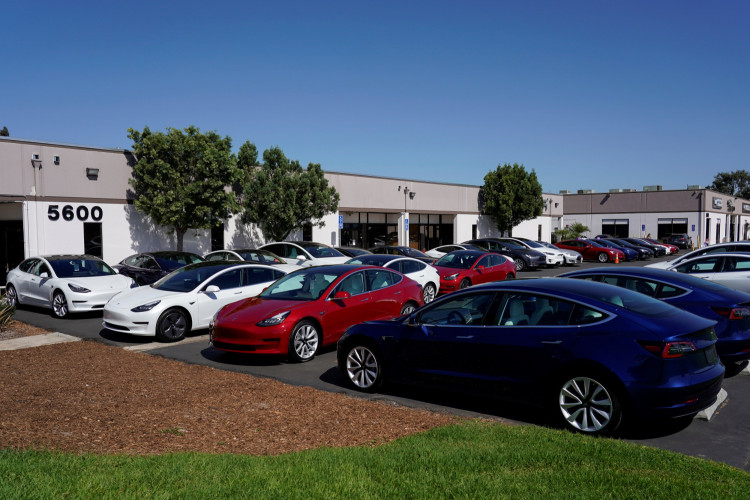Austin Electric, a British company that owns the rights to use the old Austin Motor Company logo, will begin using a revolutionary new technology that can power an electric vehicle (EV) to the incredible range of 1,500 miles on a single charge.
The Tesla Model S, the most popular EV from Tesla Inc., has a range of 370 miles on a single charge. Austin said it intends to begin installing this tech on its new EV by 2020
On Oct. 18, the technology's inventor, Trevor Jackson, signed a multi-million-pound deal with Austin to start manufacturing the tech, which Austin is describing as a "game-changer."
"It can help trigger the next industrial revolution. The advantages over traditional electric vehicle batteries are enormous," claims Austin CEO Danny Corcoran.
Jackson, an engineer who formerly served in Royal Navy nuclear submarines, has invented a new type of fuel cell (and not a battery) that greatly improves on the process by which electrolysis generates electrical power. More specifically, the device is an "aluminum-air fuel cell."
Jackson's new aluminum-air fuel cell is far simpler and cheaper to make than the lithium-ion batteries currently used in millions of EVs worldwide. This new fuel cell can also easily be recycled.
In addition, the new fuel cell is so light and powerful it might even revolutionize low-carbon transport because it supplies so much energy. The fuel cell can also power buses, huge trucks, and even aircraft.
Jackson founded a company, Metalelectrique Ltd, to commercialize his invention.
Jackson's breakthrough moment came when he developed a new formula for the electrolyte that was neither poisonous nor caustic.
'I've drunk it (the electrolyte) when demonstrating it to investors, so I can attest to the fact that it's harmless,' according to Jackson.
Jackson's electrolyte works with much lower-purity metal such as recycled aluminum cans. The formula for the electrolyte is top secret and is the heart and soul of his new fuel cell.
An independent evaluation in 2017 by the British government agency, UK Trade, and Investment said the fuel cell was a "very attractive battery" based on "well established" technology. It said Jackson's fuel cell produced much more energy per kilogram than standard EV lithium-ion batteries. Jackson's technology was further validated by two French universities.
Accredited tests have shown Jackson's fuel cell produces nine times as much energy as the lithium-ion weight for weight. The aluminum-air fuel cell also generates nine times as many kilowatt-hours of electricity per kilogram.
Jackson plans to make the fuel cell for electric bikes to prove this tech can run cheaper and much longer than others. He then intends to produce kits to convert ordinary gasoline and diesel cars into hybrids, by fitting them with aluminum-air fuel cells and electric motors on their rear wheels.
Jackson says this hybrid EV will be the stepping-stone to an EV powered by his aluminum-air fuel cells.





